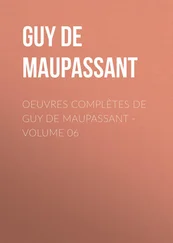A hush fell. Vera realized that the man had disappeared. For the first time that evening, she asked herself where the organ was and searched the front of the church for it. She couldn’t find it. Then, just as her eyes passed over the reader’s desk with the great eagle carved in relief, the eagle of St. John the Divine, the opening notes of Bach’s Toccata and Fugue in D Minor tumbled down from the organ loft above and behind her, from where she had least expected them to come, as if rolling thunderously down from heaven itself.
She was stunned. The eagle with the outspread wings, each feather distinct and bristling, neck ruffled, curved beak agape, took wing on the stately wind of soaring music. It filled Vera with yearning. She, too, wanted to whirl up, free. What was lost did not need to be lost forever. Couldn’t Stanley teach her? Couldn’t he tell her the wise books to read? Couldn’t he play her the music that fine, educated people listened to? Couldn’t he explain to her the pictures he hung on his wall, teach her the names of their painters? There was no need to remain forever ignorant and common. People could rise. She would rise.
Instinctively, she turned to Stanley and found him sitting hunched on the edge of the pew, elbows propped on his knees, chin jacked on his palms, face rapt. He appeared to be a man leaning forward into the warmth cast by a fire. Watching him, Vera felt that she, too, had a share in the comfort it shed. Already the music had melted the deep lines in his forehead and to Vera he looked ten years younger than when they had stepped into the church.
At the end of the recital Stanley and Vera rose from their seats, reluctant but happy. Outside, the snow which they had both predicted earlier was falling. It was a heavy, wet snow which blurred the darkness and swirled a mysterious code of white dots and dashes through the arcs of the streetlamps. Among the last to exit from the church, Stanley and Vera found themselves virtually alone in the street, the rest of the crowd having hastily dispersed in the snowstorm. There was not a taxi in sight.
“Should we start out walking?” suggested Stanley. “Just until we find a cab, or a streetcar comes along?”
Vera agreed that was a good idea. The big, drowsy flakes surrounded them in a curtain which cut Stanley and her off, isolated and screened them from the rest of the world. If this sense of privacy did not lend Vera the courage to take his arm, at least it made her feel easier in his company. The two of them went down the long, empty prospect of a tree-flanked street, wrapped in snow and their own thoughts, frequently halting so that Stanley could remove the Homburg and dust it with the sleeve of his coat before the snow melted and left water stains. That done, he would press the hat firmly back down on his head and travel another block before it was necessary once again to pause and sweep the hat clean.
Stanley and Vera were forced to wait for a light to change on a busy road. The snow streamed down brightly in the light of windows, the light of streetlamps, the beams of car headlights. Traffic had churned the snow into slush on the pavement. Without daring to look her in the face, Stanley reached out and shyly rested his arm across her shoulders. Before they crossed the road she slipped her arm around his waist.
Two months later they were married.

In the weeks before Christmas, wild and frantic were the words Vera most often employed. “That old man is driving me absolutely wild,” she could be heard muttering under her breath. Or, “They are goddamn driving me frantic,” they meaning the scabby crew of buzzards who tracked in and out of the house morning, noon, and night, eating and drinking them out of house and home. What really irked Vera was that her father assumed it was her duty to feed and water these old hogs. “Vera, could you make another plate of ham sandwiches for the boys?” he was always asking. “Is there another pan of date squares?” The last time her father had ordered up sandwiches she had told him where the bear shit in the buckwheat. “You want sandwiches, make them yourself. I don’t see any piano tied to your ass.”
She was surprised when that was what he did. He hadn’t made a scrap of fuss, just meekly left his rummy game and started slicing up a loaf of bread crooked as a dog’s hind leg, so crooked she couldn’t bear to watch and finally took the knife away from him and tackled the job herself.
This was supposed to be Christmas? A collection of derelict old farts cluttering up her kitchen, tracking in snow and leaving puddles on the floor wherever they stood or sat, the door swinging open every five seconds so that the day was one long continual draught, all of them eating as if it were their last meal and drinking up the rye and beer as if it were their last chance for a drink. The house getting dim and blue with cigarette smoke and loud with accusations of cheating and arguments over who played what card in the games of poker and rummy that went on most of the day and night. Daniel and she having their home (in fairness it was theirs, too) disrupted by a bunch of dirty old men, who shouted in their deaf-men’s voices, laughed wet, gargly laughs that rumbled into coughing fits, hawking and spitting, and generally conducted themselves in a pleasant and attractive fashion.
And the feeble excuse her father offered for this holiday invasion was that every merchant in Connaught is obliged to dispense Christmas cheer to his customers. Yes, yes, said Vera, she knew that. But every other merchant in town invites his best customers to step into the storeroom for a quick nip out of the bottle kept there for that purpose. None of the other businessmen turns the family residence into a Sally Ann or Harbour Light where every moocher feels free to camp out for as long as the fancy takes him.
Well, countered her father, he couldn’t really offer drinks out of the businesses because Mr. Stutz doesn’t approve of alcohol and won’t have any part in distributing it. And he can’t be expected to be everywhere, can he? One minute pouring drinks at the garage, the next at the hotel? So really the most sensible arrangement is to have the boys drop by the house.
It suits him but not Vera. As the lady of the house she’s responsible for keeping it cleaned and the larder stocked, tasks which are endless when you’re faced with guests the likes of them. As she’s pointed out to her father any number of times, there might be some reason for tolerating these nuisances if any of them had ever spent a nickel in any of his enterprises but she is willing to bet dollars to doughnuts they never had. They couldn’t rustle up a nickel among them if they went shares. So what was the percentage?
Besides, they were a rebuke and an insult to family pride. Of the half dozen or so regulars which were underfoot, not one of them would have been permitted to darken the door of any of Connaught’s respectable citizens. They were taking advantage of the Monkmans, turning them into laughing-stocks.
All scrubs and good for nothings of one description or other. A couple of serious drunks, a suspected dog poisoner, a pair of shiftless bachelor brothers, aged sixty-five and sixty-seven, who’ve whiled away the decades telling each other smutty stories and signing social assistance cheques until they shifted to signing old-age pension cheques. The leading light of this peerless band was Huff Driesen, the man with the sugar diabetes who comes to her father to get his needle whenever he’s been drinking and doesn’t dare show up at his daughter’s for his injection. Of all the renegades and reprobates it’s Driesen that Vera dislikes the most. He fancies himself God’s gift to women, a lady-slayer. Whenever he finds himself in Vera’s vicinity he makes calf eyes and says, “I care for nobody, not I/If no one cares for me.” This is supposed to be witty or charming, or something. Vera would like to play a tune on him with the cast-iron frying pan.
Читать дальше













